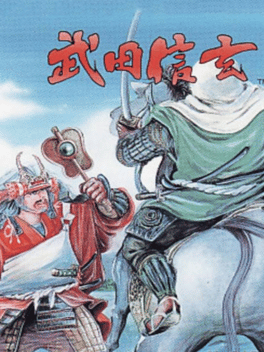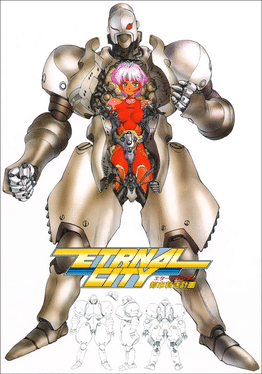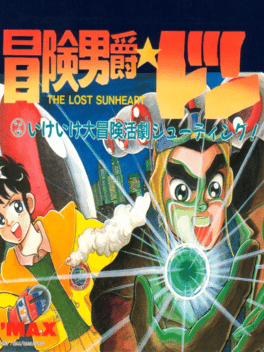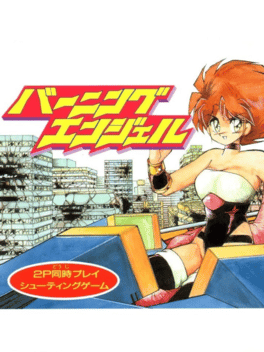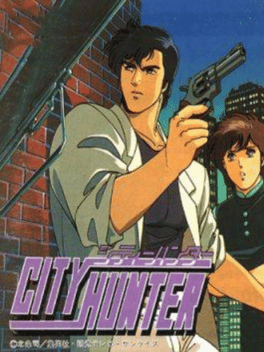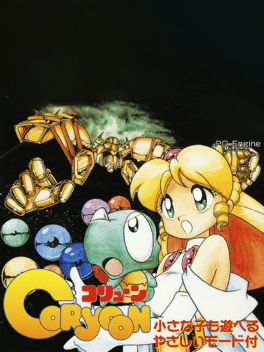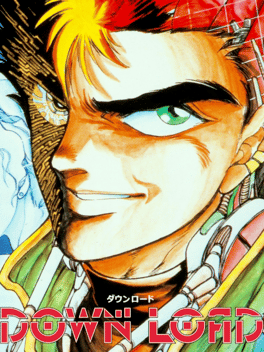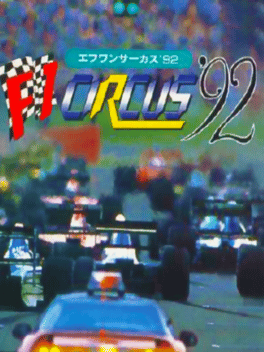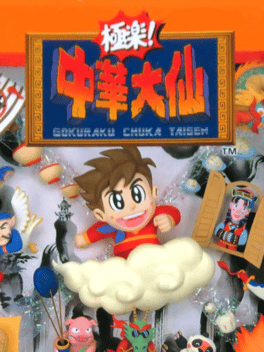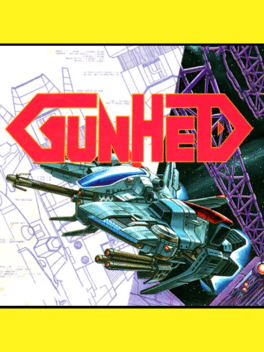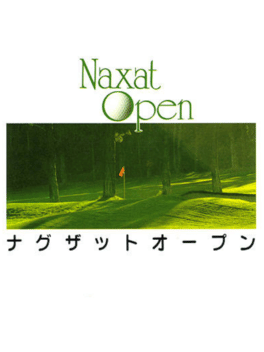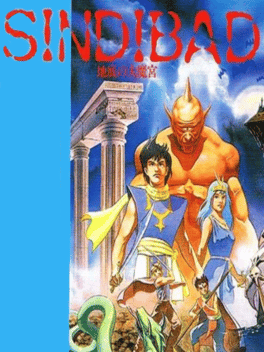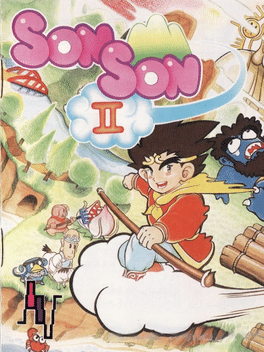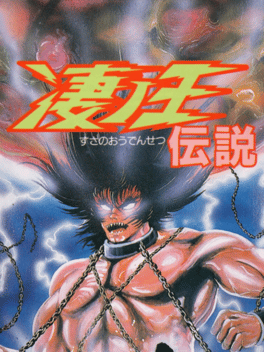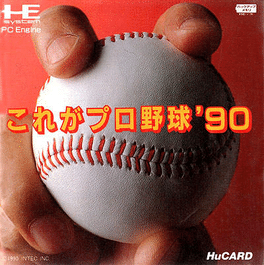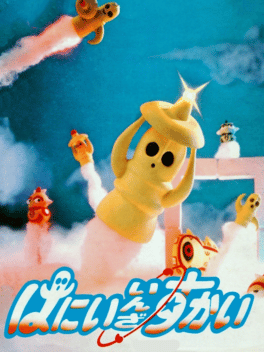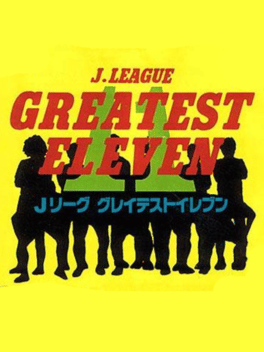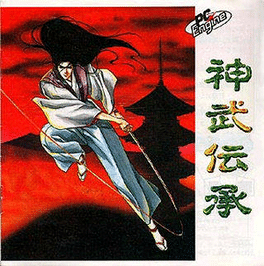Most Popular Turbografx 16 Pc Engine Games - Page 9
-
Takeda Shingen
1989
Takeda Shingen
1989
A side-scrolling brawler for the Arcade and PC Engine featuring the titular Japanese Sengoku warlord. Not to be confused with the NES strategy game of the same name. -
Toshi Tensou Keikaku: Eternal City
1991
Toshi Tensou Keikaku: Eternal City is an Action game, published by Naxat Soft, which was released in Japan in 1991. -
Circus Lido
1991
Circus Lido
1991
A single-screen action game featuring a chameleon that feeds bugs to Venus flytraps. Circus Lido, or Circus Ride, is an action game published by Uni Post exclusively for the PC Engine. The goal of the game is to navigate the stage and defeat the enemies using the chameleon's two powers: his long tongue and his prehensile tail. The tongue can be used to capture enemies and spit them out towards the Venus flytraps, which are the only way to remove them from the stage. The tail can be used to climb vines scattered around, which allows the chameleon to ascend through the stage. -
PC Kid 3
1993
-
Bouken Danshaku Don: The Lost Sunheart
1992
A horizontal shoot 'em up with a surreal edge. A group of evil eyes have stolen parts of the Sunheart, and the player needs to recover them. Bouken Danshaku Don: The Lost Sunheart ("Adventures of Don Baron: The Lost Sunheart", roughly) is a horizontal shoot 'em up exclusive to the PC Engine. The game's plot concerns the titular Sunheart device, which is broken into several pieces and spirited away by a group of malicious eyeball enemies. The hero, in a series of vehicles, takes down each of the boss creatures that are protecting a piece of the stolen Sunheart. The game is distinct among shoot 'em ups for allowing players to keep their power-ups after dying. This does not mitigate the game's difficulty, as it has some very strict checkpointing and many enemies with difficult-to-avoid homing shots. The game's surreal sense of humor comes through with its bizarre bosses, in some way invoking the flamboyant Cho Aniki series. -
Burning Angels
1990
Burning Angels
1990
Evil forces have kidnapped the leader of the Burning Project! It's up to the Burning Angels to rescue her! And so starts another vertically scrolling shooter on the PC Engine. There are no surprises in the gameplay here - choose one of two ships, shoot down enemies and collect power upgrades and energy pods. Levels range from the city to the desert and the obligatory sci-fi enemy base. At the end of each level, defeat the large boss craft to move on. -
City Hunter
1990
City Hunter
1990
A side-scrolling action game based on the manga and anime of the same name, concerning the private eye Ryo Saeba. City Hunter is a side-scrolling action game exclusive to the PC Engine. The player controls Ryo Saeba, the eponymous "City Hunter" private eye who often takes assignments from attractive female clients. Despite his lechery, he's a highly competent gunman and very sharp when reading people. The game is built similarly to Impossible Mission: Ryo explores buildings, checking doors for mission-critical NPCs and items while shooting the enemy thugs that attack him while investigating. It contains four stages, or "chapters", and appearances from various characters from the franchise like Ryo's partner Kaori Makimura, his rival Umibozu and his police contact Seiko Nogami. -
Coryoon
1991
Coryoon
1991
A horizontal shoot 'em up that casts you as a baby dragon out to free a princess from the clutches of an evil....well, you get the idea. Gameplay is traditional, with power-up weapons that include multi-way shot and 'miniature' mode and a sort of reverse R-Type beam where you don't shoot to power it up. Also contains 2 minute and 5 minute time attack modes. -
Down Load
1990
Down Load
1990
Horizontal shoot 'em up for the PC Engine. The player, as cyber-diver Syd, must fly his hoverbike through the future city of Kabukicho to rescue his partner Deva from the corrupt police. Download is a horizontal shoot 'em up set in a dystopian cyberpunk future in which the main character, Syd, is haunted by memories of his friend Ohala falling to a cybernetic menace. Meanwhile, he receives a call from his contact/partner Deva and must rush to her rescue when she is abducted by the Kabukicho police force. The game's story is depicted in a series of animated vignettes before each stage, similar to Ninja Gaiden. Beginning with the mean streets of Kabukicho, Syd will eventually jack into the internet and fights in a similar manner through cyberspace. -
F1 Circus '92
1992
F1 Circus '92
1992
A Formula One racing game for the PC Engine. The last of the F1 Circus games to be released for the system. F1 Circus '92, sometimes known as F1 Circus '92: The Speed of Sound, is a racing game for the PC Engine and part of Nichibutsu's F1 Circus series. It is the fourth and last game in the series to be released on the PC Engine platform, and the seventh game in the series overall. Like its predecessors, it is officially licensed by the distributors of Formula One in Japan, and also has the rights to use the real names of teams/drivers. The game again focuses on top-down races that move at great speed and require a lot of memorization and careful driving. The player can easily be forced to retire from the race early if they take too much damage from collisions with the walls or other drivers. There's a strong customization element as well, and the player can choose to play a Special mode that includes dialogue with NPCs between races. -
Gokuraku Chuka Taisen
1992
Classic shoot 'em up starring the Monkey King Sun Wukong. Cloud Master, or Gokuraku! Chuuka Taisen as it's known in Japan, is a horizontal shoot 'em up featuring the literary character Sun Wukong, better known as the Monkey King and the deuteragonist of the Chinese novel Journey to the West. Cloud Master was originally released in the Arcades by Taito in 1988. -
Gunhed
1989
Gunhed
1989
Gunhed, is a 1989 sci-fi shoot 'em up video game developed by Hudson Soft and Compile. It was released in Japan on July 7, 1989 for the PC Engine, and it was released in North America in November 1989 for the TurboGrafx-16. It was later released on the Wii's Virtual Console in North America on May 21, 2007, in Europe on May 25, 2007, in Australia on July 30, 2007, and in Japan on June 17, 2008. It was released for the PlayStation Network on July 21, 2010 and on the Wii U's Virtual Console on June 11, 2014 both in Japan. It is based on the Japanese film Gunhed (only referenced in the Japanese version). In the game, a fictional galaxy is under attack by an enemy space armada called the Dark Squadron, and this galaxy's only chance for survival is the Gunhed Advanced Star Fighter, who must destroy the Dark Squadron and its Super Weapons. The gameplay features fast vertical scrolling and a wide array of weapons for the player to use. Gunhed was part of the fifth Caravan Festival organized by Hudson Soft in 1989. A non- -
Naxat Open
1989
Naxat Open
1989
Naxat Open is a golf simulator from Naxat Soft. Naxat Soft hired contract developers TOSE to develop the game. Released the same week as Power Golf, Naxat Open aimed for the more serious simulation crowd whereas Power Golf appealed more to those looking for a more casual golfing video game experience. Besides a harsher level of challenge - the acceptable window of error is greatly diminished - Naxat Open plays much like other golf sims for console games: the gameplay chiefly focuses on hitting a power gauge just right to maximize the effect of each swing. -
Son Son II
1989
Son Son II
1989
This platformer sequel to Son Son was only released on the PC Engine in Japan. Son Son 2 is the direct sequel to Son Son and features an interpretation of the Son Goku character from ancient Chinese novel Journey to the West. Unlike the first game, which played like a ground-based scrolling shoot-'em-up with several floors the character could switch between, Son Son II plays much more like a traditional platformer, specifically Wonder Boy and even more overtly Capcom's earlier arcade game Black Tiger. Son Son attacks with his extendable staff (based on Sun Wukong's Ruyi Jingu Bang weapon) and can defeat enemies to earn coins, which can be spent on upgrades and health refills. The player also needs to find a key on each stage before they can reach the boss. The goal of the game is to rescue the other members of his party: Xuanzang (Tripitaka), Pigsy and Sandy. They are kidnapped during the opening cutscene by the final boss, who is depicted as a mysterious silhouette. Son Son II is also one of the earliest Capcom -
Susano O Densetsu
1989
-
Kore ga Pro Yakyuu '90
1990
A baseball game for the PC Engine that features athletes and teams from the 1990 Nippon Professional Baseball league. Kore ga Pro Yakyuu '90 ("This is Pro Baseball '90") is a PC Engine exclusive baseball game and the sequel to Kore ga Pro Yakyuu '89. It did not see a sequel. It features twelve teams and their players from the official Nippon Professional Baseball organization. Kore ga Pro Yakyuu '90 is a traditional 16-bit baseball game. The camera is positioned behind the batter, with cutaways showing other players on the bases. The pitching player can also use this view to change the formation of their fielders before the next pitch. Once the ball connects with the bat, the view switches to a distant top-down view so that the player can manage their fielders. -
Hanii in the Sky
1989
Hanii in the Sky
1989
A vertical-scrolling shoot-'em-up from Face for the PC Engine. It was never released outside of Japan. It was eventually followed by a sequel, Hanii on the Road. Hanii in the Sky is a shoot-'em-up by Face, an obscure PC Engine developer best known in the west for Money Puzzle Exchanger. The player controls the eponymous Hanii, a sentient haniwa figurine, as they shoot down legions of demonic spirits and youkai in the air. He is set to this task by ancient Japanese deity Izanagi, with the ultimate goal of rescuing his wife/sister deity Izanami. The chief feature of Hanii in the Sky is the protagonist's ability to change the direction of their weapon, allowing the player to shoot in eight different directions total. This is often required to defeat enemy waves emerging from all sides of the screen as well as the fast-moving bosses. The player can also upgrade Hanii's weaponry, allowing him to fire in more directions simultaneously, as well as purchase health refills and other useful items from Izanagi. Hanii in th -
J.League Greatest Eleven Soccer
1993
Soccer game released in 1993 for the PC Engine. J.League Greatest Eleven is a soccer game for the PC Engine published by Nichibutsu/Nihon Bussan. Despite the similar name, it has no relation to Konami's J-League Winning Eleven series. The game features the Japanese soccer league's ten teams from its inaugural 1993 season. There's an exhibition mode with support for four players and a league mode where 1 or 2 players can face off against the computer. The game also offers an option to play with four human players, but only in the exhibition mode. -
Jinmu Denshou Yaksa
1989
Jinmu Denshou Yaksa
1989
A pseudo-3D third-person rail shooter of the Space Harrier mold. It had multiple developer credits and is exclusive to the PC Engine. Jinmu Denshou is an action game in which the player character marches towards the horizon while enemies fly towards him. It looks and plays like Sega's Space Harrier, its clear inspiration, though a major difference is that the main character is a samurai-like figure who is usually limited to attacking incoming enemies with his sword. After an upgrade, he is able to fire projectiles and he can also charge up an attack and unleash it to cause a significant amount of damage. The game has a few superficial platforming elements as well. Development of the game is credited to three separate teams: obscure TG-16 developers Manjyudo, Wolf Team (better known for their Tales series) and Goblin Sound who were responsible for the music.
